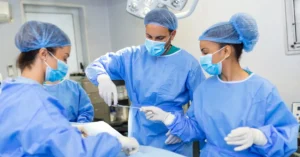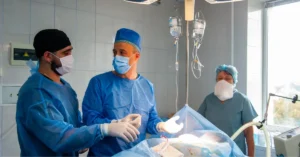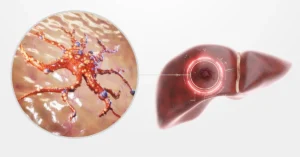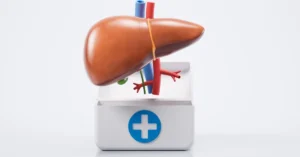
Fatty Liver Disease
Fatty liver disease, once a rare condition, has now become

Routine check-ups are a cornerstone of effective liver transplant recovery. These follow-up visits are essential to monitor the health of the new liver and ensure that the transplant is functioning optimally. Regular appointments with your healthcare team allow for early detection of potential issues and timely intervention, which is crucial for long-term success. Here's what you can expect during these routine visits:
Routine check-ups play a crucial role in ensuring the success of your liver transplant and maintaining your overall health and well-being.
Effective medication management and adherence are critical for the success of a liver transplant. After liver transplant surgery, patients must follow a strict medication regimen to ensure the new liver is protected from rejection and to manage other aspects of their health. Here’s a detailed look at why this is so crucial:
Proper medication management and adherence are fundamental for achieving a successful liver transplant recovery and ensuring the longevity of the new liver.
After a liver transplant, managing complications and side effects is crucial to ensure the long-term success of the procedure. Despite the best care, patients may experience issues that require prompt attention. Here are key aspects to consider:
Proactive management of these complications is essential for maintaining the health of the transplanted liver and overall well-being. Regular communication with your healthcare team and adherence to prescribed treatments can help navigate these challenges successfully.
After a liver transplant, making specific nutritional and lifestyle adjustments is crucial for promoting optimal health and ensuring the success of your liver transplant recovery. These changes help support liver function, improve overall well-being, and enhance the longevity of the transplanted liver. Here’s what you need to focus on:
By focusing on these nutritional and lifestyle adjustments, you can significantly enhance the success of your liver transplant and support long-term health.
Psychosocial support and counseling are integral parts of the recovery process following a liver transplant. The emotional and psychological challenges associated with the transplant journey can be significant, making it crucial to address these aspects comprehensively.
Engaging in psychosocial support and counseling ensures a holistic approach to recovery, addressing both the physical and emotional aspects of life after a liver transplant.
Following a liver transplant, regular screening and preventive care are critical to maintaining the health of the new liver and overall well-being. These measures help detect potential issues early and prevent complications that could impact the success of the liver transplant. Here’s what regular screening and preventive care typically involve:
Incorporating these preventive measures into your routine care plan is essential for the long-term success of your liver transplant and overall health.
Long-term follow-up includes routine check-ups, medication management, managing complications, nutritional and lifestyle adjustments, psychosocial support, and regular screenings.
Medication adherence is essential to prevent rejection of the new liver and manage other health aspects, ensuring the success of the transplant.
Adopting a healthy diet, regular exercise, and avoiding alcohol are crucial for supporting liver function and improving overall recovery.
Patients can benefit from counseling and support groups to help manage emotional and psychological challenges related to the transplant.
Regular screenings help detect potential issues such as liver cancer or infections early, allowing for timely intervention and better long-term health.

Fatty liver disease, once a rare condition, has now become

Cirrhosis of the liver is a serious medical condition that



Undergoing a liver transplant is a monumental step in treating

A liver transplant is a crucial and intricate surgical procedure

Embarking on a liver transplant journey in India is a

Liver transplants in India have become a crucial procedure for

Liver transplantation in India has emerged as a critical procedure, saving countless lives. However, to ensure the ethical and safe practice of organ transplantation, the Indian government has established a comprehensive legal framework.

Cirrhosis of the liver is a serious medical condition that affects millions of people worldwide. Understanding this disease, its causes, symptoms, stages, and available treatments can help manage and potentially prevent its progression.

Liver cancer is a serious and life-threatening condition that affects thousands of people worldwide. With early detection and proper treatment, there is hope for managing and even overcoming this disease. We will delve into the complexities of liver cancer, exploring its definition, types, symptoms, causes, treatment options, and prevention methods.

A Living Donor Liver Transplant is a groundbreaking procedure that provides hope to patients suffering from end-stage liver disease